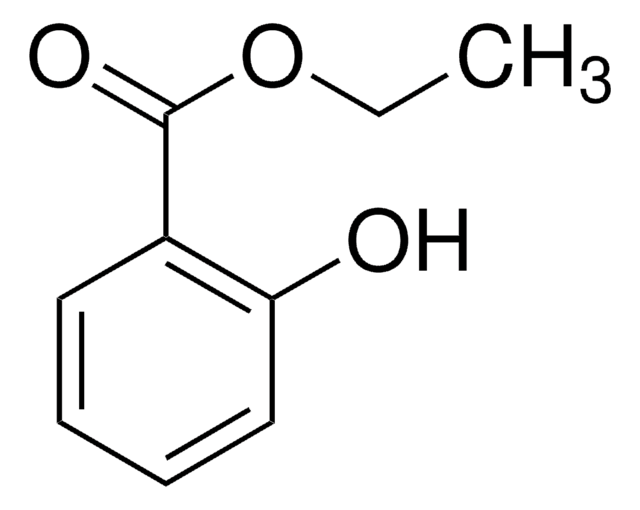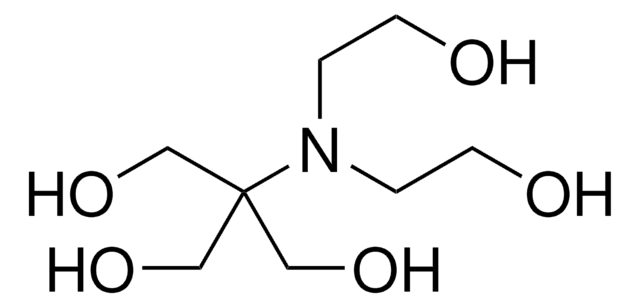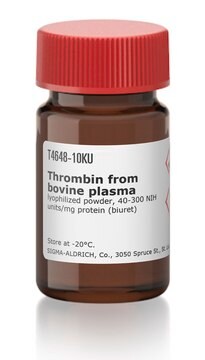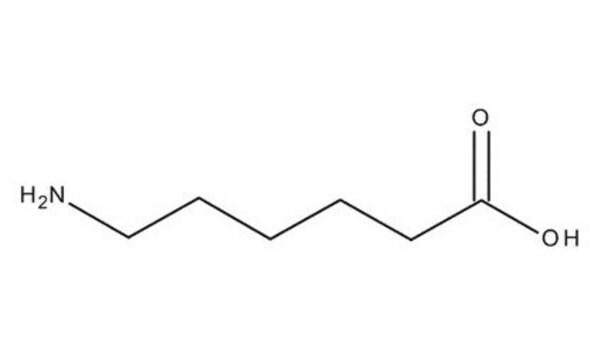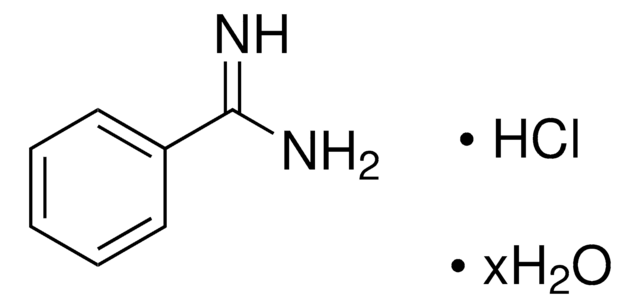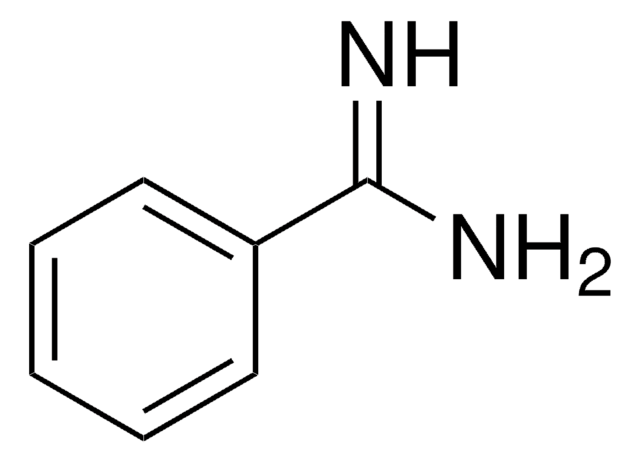A2504
6-Aminocaproic acid
≥99% (titration), powder
Synonym(s):
ε-Aminocaproic acid, 6-Aminohexanoic acid, EACA
About This Item
Recommended Products
biological source
synthetic
Quality Level
Assay
≥99% (titration)
form
powder
technique(s)
cell culture | mammalian: suitable
color
white
mp
207-209 °C (dec.) (lit.)
solubility
H2O: 50 mg/mL
SMILES string
NCCCCCC(O)=O
InChI
1S/C6H13NO2/c7-5-3-1-2-4-6(8)9/h1-5,7H2,(H,8,9)
InChI key
SLXKOJJOQWFEFD-UHFFFAOYSA-N
Gene Information
human ... PLAT(5327) , PLG(5340)
rat ... Ppm1a(24666)
Looking for similar products? Visit Product Comparison Guide
Related Categories
Application
Biochem/physiol Actions
Storage Class Code
11 - Combustible Solids
WGK
WGK 2
Flash Point(F)
404.6 - 408.2 °F
Flash Point(C)
207 - 209 °C
Personal Protective Equipment
Choose from one of the most recent versions:
Already Own This Product?
Find documentation for the products that you have recently purchased in the Document Library.
Customers Also Viewed
Articles
Analytical Enzyme Chymotrypsin: Chymotrypsin is produced in the acinar cells of the pancreas as the inactive precursor, chymotrypsinogen.
Our team of scientists has experience in all areas of research including Life Science, Material Science, Chemical Synthesis, Chromatography, Analytical and many others.
Contact Technical Service
